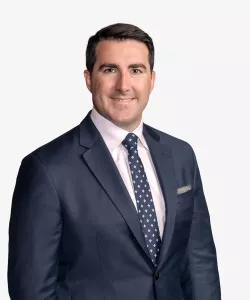Investment Bank To Pay Over $130 Million To Resolve Foreign Corrupt Practices Act and Fraud Allegations
Headlines that Matter for Companies and Executives in Regulated Industries
DOJ News
Deutsche Bank to Pay Over $130 Million to Resolve Foreign Corrupt Practices Act and Fraud Allegations
Deutsche Bank Aktiengesellschaft (Deutsche Bank) has agreed to pay more than $130 million to resolve the government’s investigations of the Foreign Corrupt Practices Act (FCPA) violations and commodities fraud. The US Attorney’s Office for the Eastern District of New York filed a criminal information charging Deutsche Bank with one count of conspiracy to violate the books and records and internal accounting controls provisions of the FCPA, and one count of conspiracy to commit wire fraud affecting a financial institution in relation to the commodities conduct. As part of the settlement, Deutsche Bank will collectively pay criminal penalties of $85,186,206, criminal disgorgement of $681,480, victim compensation payments of $1,223,738, and $43,329,622 to the US Securities & Exchange Commission. Deutsche Bank also entered into a three-year deferred prosecution agreement (DPA) with the Criminal Division’s Fraud Section and Money Laundering and Asset Recovery Section (MLARS) and with the US Attorney’s Office for the Eastern District of New York.
The FCPA investigation centered on an alleged scheme to conceal bribes made to third-party intermediaries by falsely recording them on Deutsche Bank’s books, and failing to have a satisfactory system of internal accounting controls. Between 2009 and 2016, Deutsche Bank admitted to knowingly maintaining false records to conceal payments to a business development consultant (BDC) who was acting as a proxy for a foreign official, and payments to a BDC to bribe a decision-maker for a client in order to obtain the client’s business. Deutsche Bank made these payments to BDCs either without supporting invoices or evidence of any services provided or by creating false justifications for payments.
As one example, Deutsche Bank admitted that its employees conspired to contract with a company owned by the wife of a client decision-maker to facilitate more than $1 million in bribes to the decision-maker. Deutsche Bank approved both the contractual relationship and the payments despite its knowledge of the relationship between the BDC and the decision-maker, and the need to pay the BDC in order to incentivize her husband to continue to do business with Deutsche Bank. Deutsche Bank thus violated the FCPA by agreeing to misrepresent the purpose of payments to BDCs and falsely characterizing payments to others as payments to BDCs, thereby conspiring to falsify Deutsche Bank’s books, records, and accounts. Deutsche Bank also violated the FCPA by knowingly and willfully conspiring to fail to implement internal accounting controls through, among other conduct, its failure to conduct due diligence regarding BDCs, and its payments to BDCs without invoices or adequate documentation of services performed. To resolve the FCPA claims, Deutsche Bank will pay a criminal penalty of $79,561,206, in addition to $43,329,622 in disgorgement and prejudgment interest in connection with a related matter with the US Securities & Exchange Commission.
In the commodities fraud case, Deutsche Bank admitted that, between 2008 and 2013, certain of its precious metals traders engaged in a scheme to defraud other traders on two commodities exchanges, the New York Mercantile Exchange Inc. and Commodity Exchange Inc. These traders placed orders to buy and sell precious metals futures contracts with the intent to cancel those orders before execution. The purpose of the transactions was to create the false impression of genuine supply and demand for precious metals futures contracts to encourage additional activity from other market participants so that Deutsche Bank could make a profit. In September 2020, a federal jury in Chicago found two former traders guilty of wire fraud affecting a financial institution for their respective roles in the scheme. A third former trader pled guilty in June 2017 to conspiracy to commit wire fraud affecting a financial institution and spoofing, and a fourth awaits trial on fraud and conspiracy charges.
Deutsche Bank has agreed to pay $7,530,218 as a result of this scheme—$681,480 in criminal disgorgement, $1,223,738 in victim compensation payments, and a criminal penalty of $5,625,000, which will be fully credited against Deutsche Bank’s payment of a civil monetary penalty of $30 million to the US Commodity Futures Trading Commission in January 2018.
The government emphasized that this consolidated resolution took into account the Company’s failure to voluntarily disclose the conduct to the department; the nature, seriousness, and willfulness of the offenses; and Deutsche Bank’s cooperation with the investigations and its significant remediation.
Insitu Inc. Agrees to Pay $25 Million to Settle False Claims Act Allegations
Insitu Inc. agreed to pay $25 million to settle alleged False Claims Act violations arising from contracts with the US Special Operations Command (SOCOM) and the Department of the Navy (Navy) to supply and operate Unmanned Aerial Vehicles (UAVs), also known as “drones.”
From 2009 through 2017, Insitu entered into five contracts with the Navy and two contracts with SOCOM for the supply and operation of drones at certain specified locations. Insitu allegedly induced the government to award these contracts at inflated prices by knowingly submitting materially false cost and pricing data. Insitu’s contract proposals allegedly put forth cost and pricing data for new parts and materials when it intended to use less expensive recycled or refurbished parts instead.
The settlement resolves allegations originally brought by a former executive of Insitu under the qui tam provisions of the False Claims Act, in which the government subsequently intervened. The relator will receive $4,625,000 of the settlement proceeds. The claims resolved by the settlements are allegations only; there has been no determination of liability.
Orlando Patient Recruiter Convicted in $2.8 Million Telemedicine Scheme
The owner of Scott Global, a telemarketing call center located in Orlando, was convicted for his role in a kickback scheme that caused the submission of approximately $2.8 million in false and fraudulent claims to Medicare for expensive genetic tests and fraudulent telemedicine services.
After a four-day trial, the defendant was convicted of one count of conspiracy to commit health care fraud, three counts of health care fraud, one count of conspiracy to defraud the United States and pay and receive health care kickbacks, and three counts of receiving kickbacks.
The evidence presented at trial reflected that the defendant targeted Medicare beneficiaries with telemarketing phone calls falsely stating that Medicare-covered cancer screening genetic testing, which cost as much as $6,000 per test. If the beneficiaries agreed to the testing, the defendant paid bribes and kickbacks to telemedicine companies to obtain doctor’s orders authorizing the tests, even when the doctors were not treating the beneficiary for cancer and often without even speaking with the beneficiary. The defendant allegedly then sold the genetic tests and doctor’s orders to laboratories in exchange for kickbacks and submitted invoices to the laboratories as if he were being paid for hourly marketing services, rather than per referral, in order to conceal the illegal kickbacks. As a result of this scheme, the laboratories submitted more than $2.8 million in claims to Medicare for genetic tests between November 2018 and May 2019, of which Medicare paid over $880,000. The defendant personally received approximately $180,000.
Supreme Court Declines to Review Circuit Split on Whistleblower FCA Cases
The US Supreme Court declined to take up a challenge brought by Bristol-Myers Squibb and Sanofi-Aventis US LLC to a decision that allowed the state of New Mexico to proceed with allegations of unlawful drug marketing even though a whistleblower previously lost a suit based on the same facts. Bristol-Myers Squibb and Sanofi’s petition argued that there is a split between the Seventh and Ninth Circuits, on the one hand, and the Fifth and Eleventh Circuits, on the other hand, as to whether a government is precluded from pursuing False Claims Act allegations after a whistleblower has lost a case based on the same allegations. The petition alleged that the Seventh and Ninth Circuits have said that whistleblower losses prevent the government from bringing the same case, while the Fifth and Eleventh Circuits have said otherwise.
The New Mexico Court of Appeals, siding with the Fifth and Eleventh Circuits, allowed New Mexico to proceed with allegations of unlawful drug marketing, reasoning that a whistleblower might have “thoughtlessly omitted” important allegations or simply been “incompetent,” and thus a bar on subsequent government suits “could operate adverse to the public interest.”
In response to the companies’ petition, New Mexico argued that the petition presented no major federal issue and the New Mexico Court of Appeals’ decision did not contradict any Supreme Court or federal appellate decision. The Supreme Court did not provide any reasoning for its denial of certiorari.
The case is Bristol Myers Squibb Co. et al. v. New Mexico ex rel. Balderas, case number 20-293, in the Supreme Court of the United States.
Contacts
- Related Industries
- Related Practices






